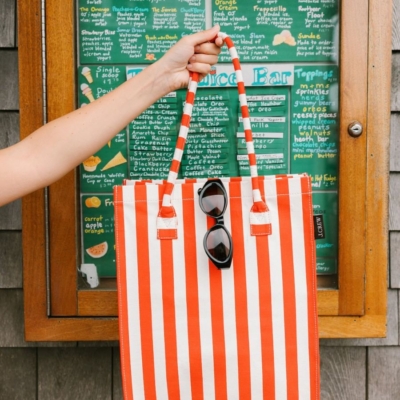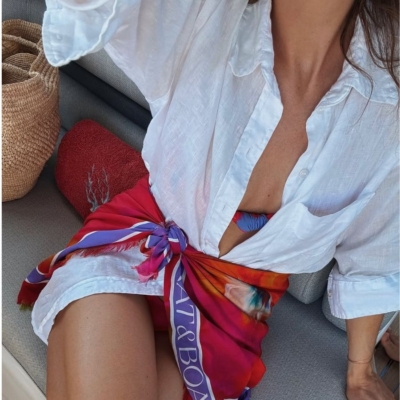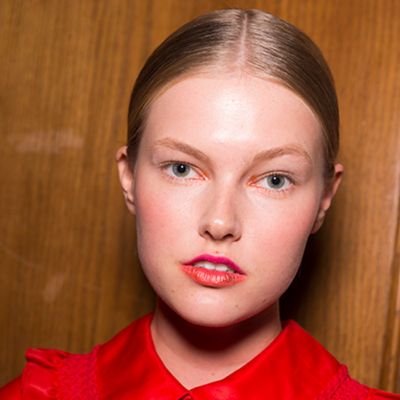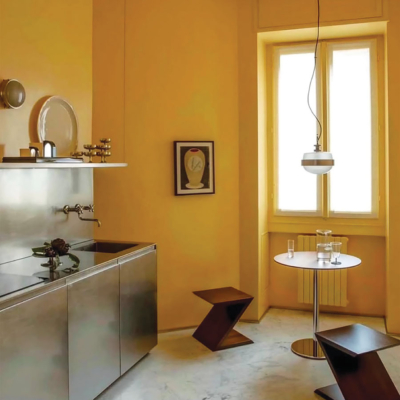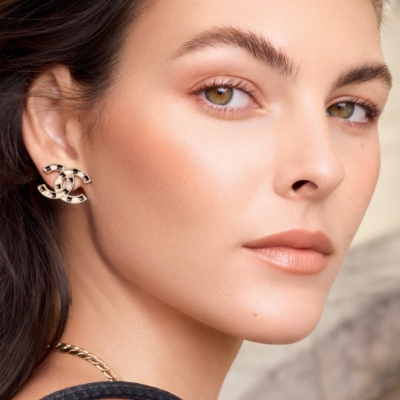Adam Wyeth is a critically-acclaimed poet, playwright and essayist who Harry Clifton once called “a beachcomber on the edge of his own infinities, where fact, legend and anecdote flow together.”
Originally from Sussex, England, Wyeth lived in South Africa before making a home in Ireland 20 years ago. His debut poetry book, Silent Music (2011), was Highly Commended by the UK’s Forward Poetry Prize. It was followed by The Art of Dying (2014), which was chosen as an Irish Times Book of the Year. His essay collection, The Hidden World of Poetry: Unravelling Celtic Mythology in Contemporary Irish Poetry, was published in 2013.
It comes as no surprise that Wyeth’s poetry has won and been commended in many competitions, including the Bridport Prize, the Arvon Poetry Competition and the Ballymaloe International Poetry Prize. His work appears in several anthologies including The Best of Irish Poetry (2010, Southward), The Forward Book of Poetry (2012 Faber) and The Arvon 25th Anniversary Anthology. In 2016, he was selected as a Poetry Ireland Review Rising Generation poet. Wyeth’s taut and alluring words brim with animation, wit and insight, regularly gifting us both the surreal and the achingly human.
Wyeth’s plays have been performed across Ireland, and in Germany and New York. Hang Up (2013, BrokenCrow) was adapted for film in 2014 and premiered at Cork’s International Film Festival. Apartment Block, showcased in 2017, is currently in development for an Off-Broadway production. In 2019, he received The Kavanagh Fellowship Award, published his latest play, This Is What Happened, and contributed to Correspondences (edited by Stephen Rea and Jessica Traynor), an anthology to call for an end to direct provision.
His pending collection, “about:blank” is an immersive, freewheeling text which Paul Perry has called, “both a playful and deadly serious manifesto about how language shapes who we are or what we might be.”
Wyeth is currently an Associate Artist with The Civic Theatre, a researcher for the RTÉ Poetry Programme, and teaches online creative writing at www.adamwyeth.com and www.fishpublishing.com.
Adam Wyeth lives in Dublin with his partner Paula McGlinchey. The Art of Dying (€10) and This Is What Happened (€10) are published by Salmon Poetry and available from all good bookshops.

On home
I’m based in Rathmines, on leafy Grosvenor Square where I reside with my partner, Paula McGlinchey. We love the area for the peace and space we have on the Square, its proximity to the city, and the bustle of the ‘mines. Our bay-window overlooks mature hedges and trees which enclose a bowling green and lawn tennis courts. It’s all very genteel, and I guess captures a little something of old Dublin.
Rathmines is very mixed and dynamic, lots of language students and artists, those on zero-hour contracts and those working for the big Techs. I suspect only doctors and lawyers can afford to own the houses here. The square has bollards at one end so no traffic can pass through, giving the square extra seclusion.
I work mostly from home, teaching creative writing online and editing, as well as working on research for the RTÉ Poetry Programme. I mix my own creative work and teaching throughout the day. In the afternoon I go for a good walk and in the summer I often cycle as well. My walking routes are various. Often it’s along the Grand Canal down to Kavanagh’s bench near Ballsbridge. I rub his head for good luck, hoping the poetry gods will be good to me. Last year it paid off when I was awarded the Kavanagh Fellowship.
I’ve lived outside of cities most of my life so while I enjoy what the city has to offer I do miss the country and go in search of green. I like to get out to the Dublin Mountains as much as possible. Before Dublin, we lived in West Cork for 15 years. First on a farm in the sticks then our last place was on the Old Head of Kinsale overlooking the sea. After Paula’s youngest child Nathan finished school we decided we needed a change. Paula’s an actor and her agent was based in Dublin. She was often back and forth auditioning and I’d also started writing plays. So it just made sense to be closer to where most of the action is. While we miss our old friends and sea view, we haven’t looked back.
Dublin’s big enough to feel international, but small enough to also feel local. I love being able to cycle everywhere. Dublin felt familiar immediately, not least, because it has been so richly captured by many of my favourite writers, particularly by Joyce. When we moved here I quickly felt Dublin was my spiritual city. I think it’s particularly striking that Dublin doesn’t just have plaques of where famous people lived, but it also has plaques of many of the characters from Ulysses. So we’re literally living in Joyce’s imagination.
On roots
I lived mostly in Crowborough as a child, which is a small town in Sussex, on the edge of Ashdown forest, where Winnie the Pooh comes from. Brighton’s the closest city, about a 30 minute drive away. Sussex is full of picturesque villages, old cricket greens, winding lanes with tangled hedges, giant oaks and beech trees, ancient barns and churches. It’s amazing that these old worlds still exist, so pristine and out of time, just an hour away from the vast tumultuous splurge of London.
Crowborough itself though is a bit of an anomaly among the sleepy idyll: a nondescript commuter town – although it does boast Arthur Conan Doyle as one of its former residents where he did a lot of his late spiritualist work. I have mixed feelings about the place and the UK in general. There are certain aspects of England I love. Brighton and London are great for their culture and diversity. I love the countryside of Sussex plus its rich literary heritage. In my area alone, Yeats and Pound lived together for a while in the forest; also there’s Virginia Woolf’s house which you can visit, and Charleston House, home of the Bloomsbury Group; Kipling and Henry James also lived in Sussex.
But then there’s an insidious class system still lurking in certain pockets, a materialistic middle-class, keeping up with the Joneses with a dash of xenophobia. While the countryside is undoubtedly beautiful, the sleepy towns and villages can feel slightly sterile and over-preserved. Wandering through the chocolate-box villages can feel like being in an expensive antique shop. You can look but not touch. I like things that are a little rougher around the edges. Ultimately it’s the people who make a place.
As a young child we had the solid family home for a while but when my parents split up we relocated to a smaller place. It was a pretty acrimonious divorce and we as children were often at the centre of it. But I also remember a very free childhood, of being outdoors a lot. I was nearly always hanging out with friends and neighbours, dreaming up mischief, cycling, skating. My brother and I used to go for long walks sometimes to the forest and play tennis together in the summer. I was a bit of a pyromaniac when I was 11. I wasn’t naturally studious, rather I sought attention messing and playing the class clown. I’m sure any of my teachers would be amazed to hear that I’m a writer.
In Dublin, it’s like we’re literally living in Joyce’s imagination
On early reading
I have an older brother and sister so there were plenty of their books about the place. I read the usual Roald Dahl, The Famous Five, The Secret Seven, The Hardy Boys. I remember enjoying those Dungeons & Dragons role-playing books. You’d read a section, then roll, then dice, which would then decide where you’d end up next in the story. It was a different kind of reading experience, and captured my imagination. Thinking about it now, those books may have made a bit of an impact on me as a poet, particularly, my next book “about:blank” which is all about breaking up the logical linearity of story-telling.
At seventeen I wrote a little poem and a dear old friend, Mike Godden, was very encouraging and gave me Shakespeare’s and Whitman’s Complete Works. These two tomes changed my life at a pivotal time for me. It was like a great light turned on in my head. Mike was a bit of a philosopher and writer himself and he became a surrogate father and mentor. Everything that I am today I owe to him really.
On South Africa
I first went to South Africa in 1998. I’d met a couple of South Africans a few weeks before when I was still in Crowborough. They were on their honeymoon travelling around England in a camper van and I said they could park it in our driveway for the night. They lived in a Tepee in a place called Rustler’s Valley in the Drakensberg Mountains. The next morning before leaving they told me about their communal life, how they were trying to create a free and self-sufficient community. They casually invited me to visit sometime and wrote down their address as we said our farewells. I presumed I’d never see them again.
Later that year after a particularly miserable Christmas I watched the film, Dances with Wolves. It sounds cheesy, but from a young age I felt a strong affinity with Native American culture. Immediately after the film that night I wrote a letter to the South Africans I met telling them I’d love to visit. They must have written back, saying it was okay, as after a couple of months of saving I found myself flying to Johannesburg to go and stay with them.
I had no idea what to expect. My knowledge of South Africa was extremely limited. I’d heard of Mandela and apartheid but that was about it. I imagined a lot of the country would be scrubland or desert and was amazed to see how green and lush it was – and also how vast and Americanised the cities were. It was an extraordinary experience and education. I didn’t go to university, so for me travelling around Europe and Africa was my tertiary education. One of the standout memories I have of South Africa is hanging out with the Sangomas (the traditional witch-doctors) in Transkei. They danced through the night to drums, drinking their local brew and fell into trances channeling the spirits of their ancestors. It was totally exhilarating. I spent the next day with them and they were as free and playful as children.
The following year I was in Zimbabwe. I’d driven up with a couple of other travellers I’d met at Rustler’s Valley and we found ourselves on our way to a place called Chimanimani Mountains. The village was much further than we anticipated and the car was desperately low on petrol. We thought we’d never make it and expected we’d have to sleep on the side of the road. After hours of the car climbing up the mountain, the final leg was downhill so were able to roll down in neutral. We arrived late at night in a place called Heaven Lodge and were elated. There was a party happening too; lots of other travellers passed through to go on big hikes in the mountains.
A beautiful woman caught my eye across the crowded room as we entered. Later, I was talking to the owner of the lodge, he inquired about my surname. I told him it was Welsh. He then turned around and said, “Paula meet Adam, another Celt.” Not many couples can say they met in heaven.
Paula ran her own restaurant called Msasa Café, named after a tree, which grows in abundance in Zimbabwe. Falling in love is magical in itself but falling in a place of staggering natural beauty was particularly otherworldly. I felt like I was living in Twin Peaks. Anyway, after a few weeks I had to return to England. Zimbabwe was becoming an increasingly unstable place to live; the sense of threat was increasing, even in a sheltered, peaceful village like Chimanimani. After spending most of her life in Southern Africa, Paula decided to come back to Ireland for her children’s safety. Her sister had also recently moved to Kinsale, so that’s where she went. I’d never been to Ireland before and after a few months I followed her over.
I’ve lived in Ireland for 20 years, which is half of my life now. After years of travelling and getting to know other cultures, I feel I’ve found my home. Aspects of England will never leave me, but I’ve always felt more at home with people on the continent and in Ireland, where communities are a bit more close-knit. I’ve always found that Ireland has preserved something different, which England has never been able to fully recover. I love the story of how Ireland saved civilization. Perhaps it will come to the rescue again as Britain seems to be slipping back into another Dark Age.
A beautiful woman caught my eye across the crowded room as we entered. Not many couples can say they met in heaven.
On poetry
When I was very young I remember really being into music. I used to spend hours sifting through my mum’s record collection. She had a lot of Motown, Frank Sinatra and Elvis. I’d listen and write down the lyrics of the songs so I could learn them off. I also made up some of my own lyrics and songs. I guess this was an early form of creative writing, though I didn’t know it then. After Whitman and the bard, I started to scribble more, occasionally keeping a journal…the usual teenage angst. My style was archaic and mostly romantically inspired. I assumed all the real poets had died after Shelley and Keats.
When I came to Ireland in my early twenties all that changed as I discovered that there was a strong poetry culture here. I met living poets such as Desmond O’Grady and Derek Mahon, both residents in Kinsale, and many more in the city. Desmond had lived the bohemian life in Europe and fraternised with many of the leading avant-garde artists, meeting Beckett and becoming a lifelong friend of Ezra Pound. He played himself the Irish poet, in Fellini’s La Dolce Vita. Desmond was forever spouting pithy proverbs on poetry and spoke about the importance that writers have discipline, routine and regularity. I remember Heaney talking about the word poet as being an almost sacred word, an honoured title. It appeared that becoming a poet here was something vocational, a deep calling like the priesthood. I detected a reverence and respect towards poets I’d never seen anywhere else. All of this chimed with my instincts and my affinity with poetry. It was then I started writing in earnest and reading much more widely and learning about Irish myth.
On creating
My current writing space is in our bedroom. It’s a simple but fine room. I work in the corner of the room on an old bureau where my desktop sits. I have the window behind me so as to not distract. I try not to be precious about where I work as there are enough excuses to procrastinate. As long as I have some quiet and light coming into the room, I’m happy. My own writing usually comes in short energetic spurts, followed by endless shaping and tinkering. Above my desk I have my first article framed, a feature in the Irish Examiner from 2001 on Desmond O’Grady, who I befriended in Kinsale. Beneath that I have some letters and postcards which I’ve framed. There’s a letter from the philosopher Betrand Russell addressed to Mike Godden. A postcard to me from Seamus Heaney, a letter and poem from Derek Mahon; and perhaps the most treasured piece of correspondence of all, is a postcard which I received out of the blue from the writer Lady Antonia Fraser, Harold Pinter’s widow. My first collection Silent Music was Highly Commended by the Forward Poetry Prize and Fraser was one of the judges. One of the poems in Silent Music is about Paula and I reading a Pinter play in the garden. I don’t know how she got my address but one day it arrived telling me how much she appreciated the poem. She said how she and Harold used to read his plays together also. “Especially on holiday,” she said. “He played her, I played him.” I particularly love this last part of role reversal: a brilliant bit of biographical detail which I’ve not read anywhere else.
On independent bookshops
Alan Hanna’s Bookshop in Rathmines has a fine display of poetry and plays. I also like The Village Bookshop in Terenure and The Last Bookshop in Portobello for its great array of second hand books. Then of course Books Upstairs when I’m in town. They are a great support to local authors and often hold readings and launches. Hodges Figgis (or as it’s owned by a Russian Tycoon, I like to call it Fudges the Figures) is a great cathedral of books and I like that it’s been immortalised by Joyce.
On his “To Be Read” pile
I have an ever growing mountain of books by my bed, susceptible to avalanches. I’m always reading dozens of books at any one time. A few which I’m working through or getting to are Anne Carson’s extraordinary collection, An Autobiography of Red; Harold Bloom’s Anxiety of Influence; Shakespeare and The Goddess of Complete Being by Ted Hughes; James Hillman’s A Blue Fire; David Lynch’s Room to Dream; Sapiens: A Brief History of Humankind; Joan Didion’s The White Album; The Hidden Life of Trees; Beckett’s How It Is; and for Christmas I got the artist Stanley Donwood’s book on working with Radiohead, There Will Be No Quiet. There’s also many recent poetry collections there, which I get as part of researcher for the RTÉ Poetry Programme. The poets I’m currently reading are Jane Robinson, Paul Kingsnorth, John McAuliffe and Gerry Smyth.
On escape
I used to return to Sussex once or twice a year, where my old friend Mike lived nestled in twenty acres of medieval woodland. This place was a real sanctuary for me during my formative years. Since his passing a few years ago I sadly don’t return to the UK as often. I love to travel to new places, seeking out different cultures and wish I could do this more. My regular places of escape and peace are still in seeking out great innovative literature. I’m a great believer in not just reading widely but deeply. My daily walks are also ways to free the mind and gain a clearer perspective. I’ve been flirting with various forms of meditation intermittently over the years and am a sucker for books on psychology and spirituality. David Lynch is a passionate advocate of Transcendental Meditation. I’ve often listened to him and others talk about it, but the price of learning always put me off. The idea of paying for something as simple and basic as meditation felt wrong. Then a couple of years back Paula and I went along to an evening at the Transcendental Meditation Centre in Rathmines and we decided if we didn’t give a go we’d never know what we might be missing. We’ve been doing it daily now and never miss. As Lynch says in his mid-western whine, “It’s money in the bank!”
It’s brilliant for reducing tension, boosting creativity and for general health and well-being. The cost is actually not much when you think of the time and support you get learning it…no more than you’d pay for music lessons.
On The Art of Dying
The Art of Dying grew pretty organically. Since my first collection Silent Music, I’d become increasingly more interested in Irish mythology and started to write various poems inspired by, or based on tree folklore and Ogham, the Celtic Tree Alphabet. These poems finally turned into the sequence, “The Talking Tree Alphabet” which are in the book. At the same time I was reading more and more modernist literature, including the work of Harold Pinter. He’s become more important to me than any other writer over the last few years. So the sense of mystery, menace and dialogue started to take on a deeper resonance for me. I also lost several father figures during the making of book; my blood-father; Desmond O’Grady and Mike Godden, all within a few years of each other. So this inevitably made an impact, the father archetype became a pertinent aspect.
On “about:blank”
I’m adding the finishing touches to my next collection, “about:blank” which will be published in May this year. It’s a large, shape-shifting piece of work, my most ambitious and experimental collection yet. A mixture of poetry and prose which turns into a play at the end, it muses on language and relationships, fusing connections from the inner and outer lives of its speakers. I’m very excited about it. Ahead of publishing this I’ve been wondering how I could deliver it, as it’s not the normal kind of page-long poems. So I’m thinking of creating a multimedia event, distorting voice and applying an atmospheric soundscape and visuals. I recently bought a Roland Voice transformer, so I’ve been having fun playing with this. This is something I can explore as part of my time at The Civic Theatre. I have no idea quite what will come out of it, but like the text it should be experimental and immersive. Writing plays is great, but it takes time and a lot of money to get work produced. So this may be a handy way of letting me create something which I can take on the road myself.
What’s next on the horizon for you?
I’m currently running a poetry surgery workshop at the Irish Writers’ Centre with poet Jessica Traynor. I’ve also been working on lyrics with composer David Downs for a new musical, Into the West, which Michael Barker-Caven has adapted from the film. Next month I’ll be workshopping another new play of mine with director Tom Creed that I’m hoping to develop. And I’m starting another project with director Eoghan Carrick. I’m also putting together another book which is a series of correspondence interviews with leading poets about their work, which I’ve gathered from my research work for the RTÉ Poetry Programme.
LOVETHEGLOSS.IE?
Sign up to our MAILING LIST now for a roundup of the latest fashion, beauty, interiors and entertaining news from THE GLOSS MAGAZINE’s daily dispatches.






